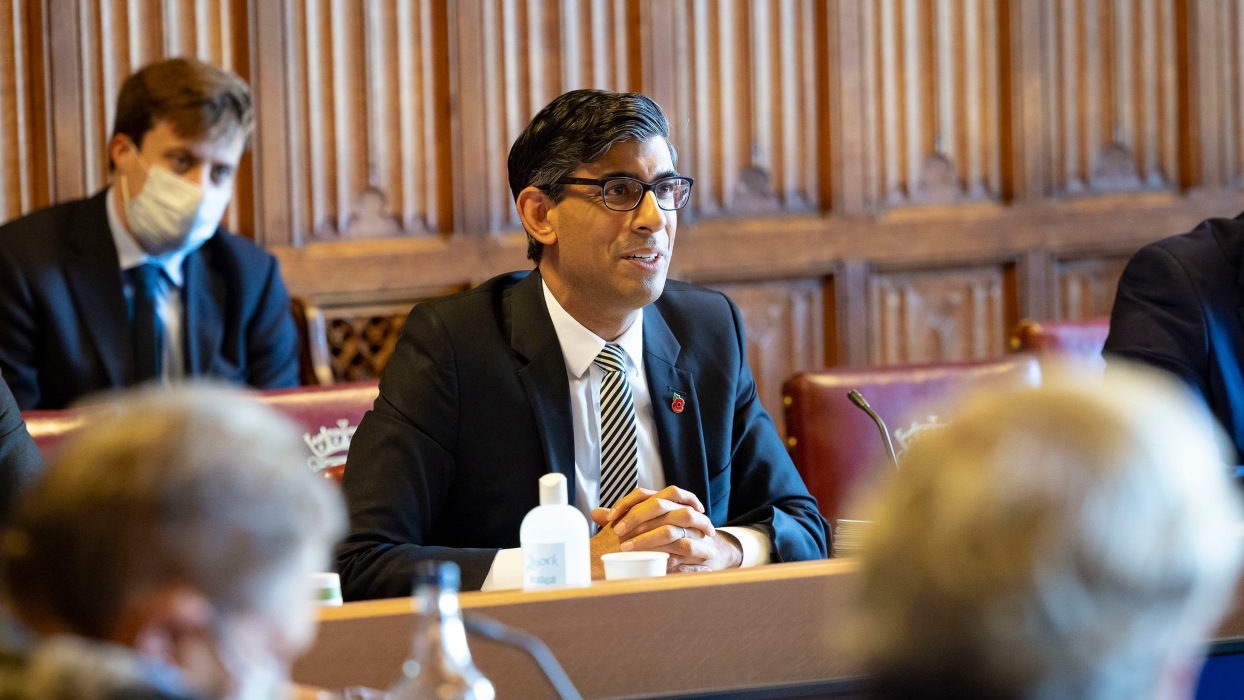The government has announced that the benefit cap threshold will rise with inflation, but the policy continues to prevent families from receiving what they need. Research by Dr Ruth Patrick and LSE’s Dr Kitty Stewart into the effects of the payments cap shows the extent to which it deprives families when financial support is most urgent. They argue that the government should restore the link in the social security system between need and entitlement.
A surprise in the UK government’s 2022 Autumn Statement was the announcement that the benefit cap threshold will rise in line with inflation. This is the first such increase in the policy’s nine-year history, and it will make a real difference to families whose benefits the cap limits. As part of a major research programme documenting the effects of the benefit cap and the two-child limit, which restricts some benefit payments to the first two children, we have been conducting qualitative longitudinal research with families over the last 18 months. The extent of the hardship these families face has frequently shocked us. While they will receive a little additional support come spring 2023, it is far from enough to meet their needs.
The benefit cap was introduced by Chancellor George Osborne in 2013 and sets a limit on the total amount of benefits a working-age household can receive if no-one is in work. It now seems that the main reason for the policy was a cynical electoral one (it ‘polled off the charts’), but the stated justification was a flawed idea of ‘fairness’. The cap was set at the amount the average family received in wages, even though this notional family would also be receiving additional support through child benefits and tax credits. Any attempt at a rational justification for the level of the cap was soon abandoned. In November 2016 the threshold was lowered to the arbitrary level of £20,000 (£23,000 in London) and has remained frozen since in cash terms. Prices have meanwhile risen by 23% and private sector rents are up by 11%. So capped households have been increasingly squeezed every year, often unable to cover even basic necessities.
The vast majority of affected households in the UK – 87% – have children, many of them very young. Two-thirds are single parents. So the policy is knowingly ensuring that children in the UK are growing up in families without the financial resources to meet their needs, and that parents are left doing the best they can without adequate support. The participants in our study of 44 larger families in York, Bradford, London and Leeds tell us of the difficulties of clothing and feeding their children and keeping them warm. Their financial precarity leaves them feeling vulnerable and often desperate. Ashley is a single parent to four children. She told us:
‘Do you know how many times I’ve been indoors and I’m like, I’ve cried over a like, because I can’t afford to buy toilet roll, I’ve actually cried … You know it’s got to the point where I just give up…cos I’m living on hardly anything, it’s depressing. Like my daughter’s been walking around with like holes in her shoes for like, because I can’t afford to get her a pair of school shoes.’
The cap is putting families in danger, especially as winter approaches. Lucy lives with her partner and three young children in London, with the high rent charged by their private landlord pushing them up against the cap. She told us the family is left with around £65 per week to live on after rent, council tax and deductions to cover advance payments. Her landlord complains that she doesn’t put the heating on, something she simply cannot afford to do:
‘The people that we’re renting from they keep blaming me “Oh why you’ve got mould is because you’re not opening the windows or putting the heating on?” But I explained to them “How do you expect me to keep putting the heating on from morning to night, are you paying for my gas bill? No.”‘
The presence of mould is especially concerning in light of the recent news that two-year-old Awaab Ishak died because of mould in his family’s flat in Rochester in 2020.
The government might say that the benefit cap encourages people to move into work or to look for cheaper housing. But our research finds that for many these are not realistic options. Given very tight work-related conditionality in the benefits system, it is perhaps no surprise that there is generally a very good reason why no-one in the household is currently working. Some of the families we are speaking to are not required to work under wider Department for Work and Pensions rules because their children are so young. Others have health difficulties or children with additional needs that make work challenging. A family is exempt from the cap if anyone is in receipt of disability benefits, but we have found that it is common for capped households to include adults or children with illnesses or disabilities that do not qualify for the exemption.
Bushra is a single mother whose youngest child, aged two, is tube-fed. Stress around this condition is what led to the breakdown of her marriage. Because her son’s condition is considered to be short-term, she does not receive disability benefits and is affected by the cap. She is highly motivated to work, but finding childcare has been a challenge:
‘Every childminder that I’ve tried, they’re all scared about his tube, they get, something happens like they think they can get in trouble … Otherwise I’m very active; I could get a receptionist job or what I studied as a facilitator, I’m a speaker as well, motivational speaker … But then three childminders have rejected me because of his condition; so then I kind of like, OK, slide it away, look after your child, that’s it.’
Moving to cheaper housing is also unrealistic in the current housing market. Our participants are already in housing that is overcrowded and in poor condition. There aren’t cheaper options. Many of those who are renting privately are desperate to move into social housing, which is generally lower cost and better quality, but the supply is simply inadequate; they ‘bid’ weekly and are consistently hundreds of places down the waiting list.
From April 2023, the uprating of the cap will mean another £196 a month for families in London and £168 for those in other parts of the country. This will make a difference. But April is still a long way off, and even with the rise the benefit cap remains a cruel and punitive policy which deprives families of adequate support at the time they need it most. With more uncertainty ahead, it is high time to restore the link in our social security system between need and entitlement. The cap should be abolished, not just tweaked.
_____________________
The Benefit Changes and Larger Families project is a mixed methods research project exploring the impact of benefit changes including the benefit cap and the two-child limit on the experiences and outcomes of larger families. More information and our latest publications can be found here. The project has been funded by the Nuffield Foundation, but the views expressed are those of the authors and not necessarily the Foundation.
About the Authors
Kitty Stewart is Associate Director of the Centre for Analysis of Social Exclusion and Associate Professor of Social Policy at LSE.
Ruth Patrick is Senior Lecturer in Social Policy at the University of York.
Photo by Karolina Grabowska.






